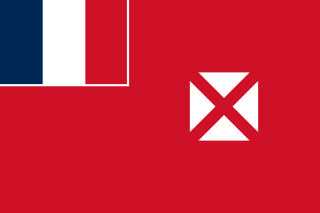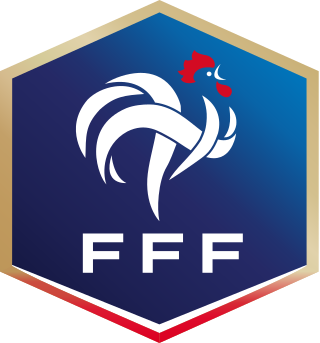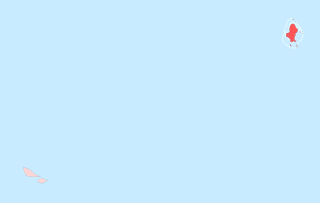
Wallis and Futuna, officially the Territory of the Wallis and Futuna Islands, is a French island collectivity in the South Pacific, situated between Tuvalu to the northwest, Fiji to the southwest, Tonga to the southeast, Samoa to the east, and Tokelau to the northeast.

In France, secondary education is in two stages:

The administrative divisions of France are concerned with the institutional and territorial organization of French territory. These territories are located in many parts of the world. There are many administrative divisions, which may have political, electoral (districts), or administrative objectives. All the inhabited territories are represented in the National Assembly, Senate and Economic and Social Council and their citizens have French citizenship and elect the President of France.

Public holidays in New Zealand consist of a variety of cultural, national, and religious holidays that are legislated in New Zealand. Workers can get a maximum of 12 public holidays and a minimum of 20 annual leave days a year.
An academic term is a portion of an academic year during which an educational institution holds classes. The schedules adopted vary widely. Specific synonyms are commonly used to denote the duration or a term. In most countries, the academic year begins in late summer or early autumn and ends during the following spring or summer.

Metropolitan France, also known as European France, is the area of France which is geographically in Europe. This collective name for the European regions of France is used in everyday life in France but has no administrative meaning, with the exception of only Metropolitan France being part of the Schengen Area. Indeed, the overseas regions have exactly the same administrative status as the metropolitan regions. Metropolitan France comprises mainland France and Corsica, as well as nearby French islands in the Atlantic Ocean, the English Channel, and the Mediterranean Sea. Its borders have undergone significant changes over the centuries, particularly in the east, but have remained unaltered since 1947.
A long weekend is a weekend that is at least three days long, due to a public or unofficial holiday occurring on either the following Monday or preceding Friday.

The French Football Federation is the governing body of football in France. It was formed in 1919 and is based in the capital, Paris. The FFF is a founding member of FIFA and is responsible for overseeing all aspects of the game of football in France, both professional and amateur. The French Football Federation is a founding member of UEFA and joined FIFA in 1907 after replacing the USFSA, who were founding members.
A territorial collectivity, or territorial authority, in many francophone countries, is a legal entity governed by public law that exercises within its territory certain powers devolved to it by the State as part of a decentralization process. In France, it also refers to a chartered administrative division of France with recognized governing authority. It is the generic name for any territory with an elective form of local government and local regulatory authority. The nature of a French territorial collectivity is set forth in Article 72 of the Constitution of France (1958), which provides for local autonomy within limits prescribed by law.

Politics of Wallis and Futuna takes place in a framework of a parliamentary representative democratic French overseas collectivity, whereby the President of the Territorial Assembly is the head of government, and of a multi-party system. Executive power is exercised by the government.

An academic year or school year is a period that schools, colleges and universities use to measure the quantity of study that are often divided into academic terms. During this period, students attend classes and do relevant exams and homework. It comprises school days and school holidays. Duration of school days, holidays and school year vary across the world.

Wallis is a Polynesian atoll/island in the Pacific Ocean belonging to the French overseas collectivity of Wallis and Futuna. It lies north of Tonga, northeast of Fiji, east-northeast of the Hoorn Islands, east of Fiji's Rotuma, southeast of Tuvalu, southwest of Tokelau and west of Samoa. Its area is almost 100 km2 (39 sq mi) with 8,333 people. Its capital is Mata Utu. Roman Catholicism is the predominant religion. Its highest point is Mount Lulu Fakahega. Wallis is of volcanic origin with fertile soil and some remaining lakes. Rainfall is plentiful.
The weekdays and weekend are the complementary parts of the week devoted to labour and rest, respectively. The legal weekdays, or workweek, is the part of the seven-day week devoted to working. In most of the world, the workweek is from Monday to Friday and the weekend is Saturday and Sunday. A weekday or workday is any day of the working week. Other institutions often follow this pattern, such as places of education. The constituted weekend has varying definitions, based on determined calendar days, designated period of time, and/or regional definition of the working week. Sometimes the term "weekend" is expanded to include the time after work hours on the last workday of the week.
Wallisian, or ʻUvean, is the Polynesian language spoken on Wallis Island. The language is also known as East Uvean to distinguish it from the related West Uvean language spoken on the outlier island of Ouvéa near New Caledonia. The latter island was colonised from Wallis Island in the 18th century.

The following outline is provided as an overview of and topical guide to Wallis and Futuna:

Overseas France consists of 13 French territories outside Europe, mostly the remnants of the French colonial empire that remained a part of the French state under various statuses after decolonization. Most, but not all, are part of the European Union.

Although the European portion of France is part of the Schengen Area, its overseas departments, collectivities and other territories apply their own visa policies, which have some additional exemptions or restrictions compared to the visa policy of the Schengen Area.
Susitino Sionepoe, S.M. is a Futunan Catholic prelate and the current Bishop of Wallis et Futuna. He was consecrated on March 24, 2019, by Archbishop Michel-Marie-Bernard Calvet in Mata'Utu, the Capital of Wallis and Futuna. His appointment as bishop was the result of the resignation of the previous bishop on 24 December 2018. He is a member of the Marists.

The COVID-19 pandemic in the Wallis and Futuna is part of the ongoing worldwide pandemic of coronavirus disease 2019 caused by severe acute respiratory syndrome coronavirus 2. The COVID-19 pandemic was confirmed to have reached the French overseas collectivity of Wallis and Futuna on 16 October 2020. As of 24 August 2021, there have been 454 confirmed cases of COVID-19 with 7 deaths reported to WHO. The last reported confirmed case was reported in April 2021.












